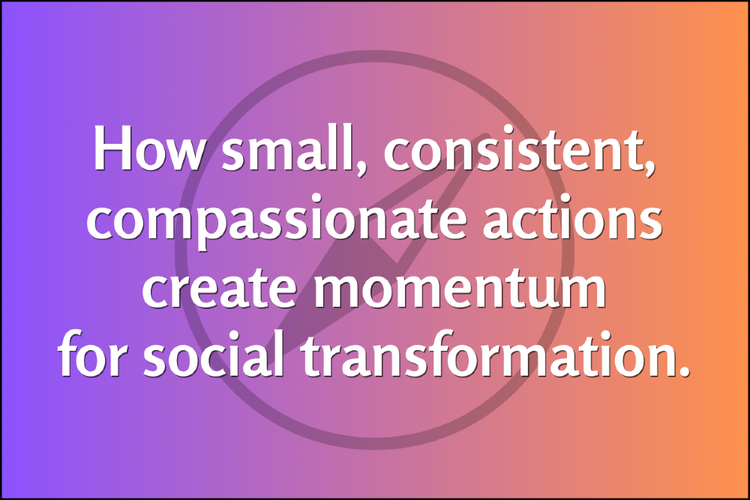From Attack to Empathy: Practicing Humility and Impartial Witnessing on Social Media

The next time you find yourself about to attack someone on social media (because they are oh-so-wrong), ask yourself,
“How can I respond in a heartfelt way with humility and understanding?”
Once you have your answer, I challenge you to express it to the other person.
Then, practice “impartial witnessing” — meaning, don’t allow your ego to anticipate or need a reply. The other person might not be ready to respond in the same way as you did — if at all.
If they respond with anger or go on the attack, again, ask yourself the question above, “How can I respond in a heartfelt way with humility and understanding?”
If you cannot respond with a gentle question or response, your next best option might be silent listening. This is not silence in the sense of not speaking up. Instead, this is silence practiced as a form of impartial witnessing, of being open to understanding the other person’s beliefs, values, and morals, and as an equalizing practice.
You might not be able to change that person’s heart or mind, but by giving yourself the space to witness and process what transpired, you are training yourself to improve how you might engage in a similar situation, next time.
All social transformation starts with personal transformation.
As I have been developing my Principles of Human-Hearted Leadership, I have been concurrently practicing them.
Humility and impartial witnessing are two of the virtue principles that I find most challenging. Like working out at the gym to increase muscle size, I have to practice these virtues regularly to increase my capacity and strength to overcome old behaviours. However, the more I practice, the more I feel centred, calm, and confident in how I approach contentious situations.
My impartial witness has shown me how many of us have been conditioned to react or attack first — not leading with questions, curiosity, compassion, or understanding.
Once I made this observation, it caused me to change the way I look at things — resulting in the things I am looking at also changing.
An invitation to practice these two virtues of human-heartedness for yourself.
Remember, the question above and the practice of impartial witnessing is not about the other person. Instead, it is about whom you want to be as a human-hearted leader to be the change you would like to see in the world.
Please let me know how this practice works for you.
☞ If you want to increase humility and impartiality in your life, to respond to difficult situations more thoughtfully, let's book a call to start a practice that will make you a more impactful, human-hearted leader. Leave me a comment or fill out the contact me form, below.





Member discussion